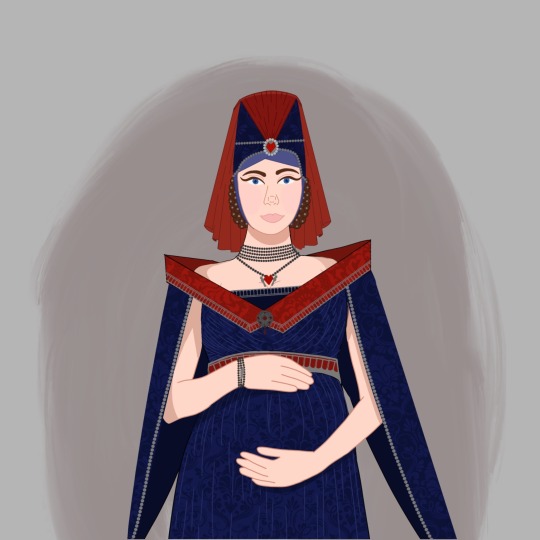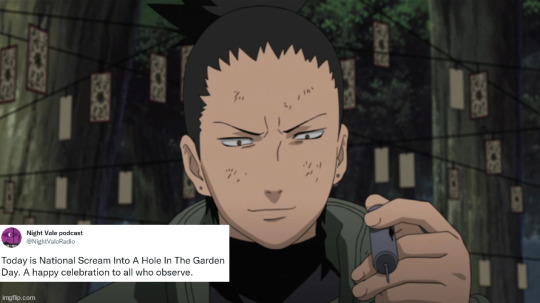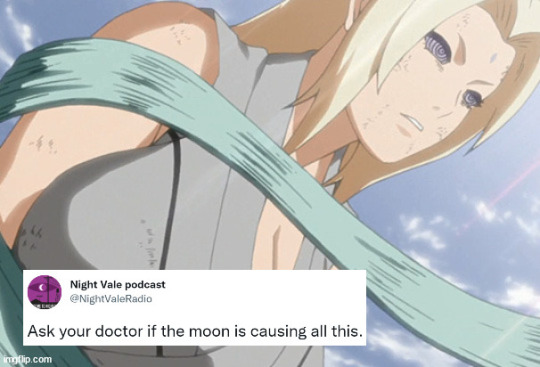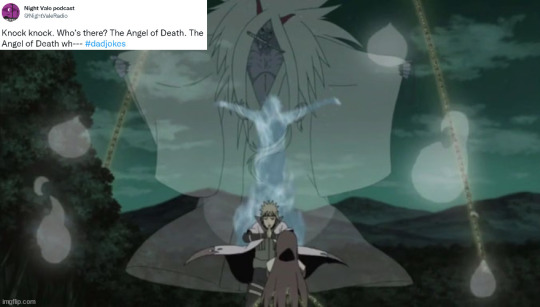#vale ladies
Explore tagged Tumblr posts
Text
Three Green Queens AU (part 5).
Rhaena Targaryen, the Princess in the Vale of the Dragon of the Vale. She is 15 at the beginning of the AU. 👇She is 20 here, and still resides in the Vale as a ward of Jeyne Arryn (timeline : the execution of Rhaenyra - 136 AC). Like in the canon, she is married to Corwyn Corbray and posesses a dragon hatchling, Morning.

Rhaena is in this AU one of the threats Alicent, as Queen Regent, fears the most. Her dragon Morning is still young though, and Rhaena is hesitant to engage in any battle due to her inexperience, her various pregnancies and the children resulting from them. Rhaena has two children by 136 AC, one of whom has a hatchling. The battle is at a standstill, and Alicent fears Rhaena might grow more powerful and influencial with time, having more children & more dragons they can ride.
Alicent's advantage rests on the known fact that Jaehaera posesses a large fearsome dragon, much bigger than Morning, and that she holds captive both her sister Baela & her brother Aegon.
Rhaena has technically been married in a proxy ceremony to Lord Unwin Peake, a way for Alicent to spite Rhaena and to proclaim her children with any other men as bastards (essentially forbidding her to marry anyone else). Rhaena responded by marrying Corwyn anyway (so, her children have an incertain status).
Letters are sometimes exchanged between the Vale and King's Landing, and both Alicent and Rhaena have come to master the art of pettiness and polite insults. Alicent calls Rhaena "Lady Peake" in all occasions, while Rhaena calls Alicent "Lady Caron" (after her third husband). Baela has taken up the petty name, refering to Alicent as "Queen Caron". In her least dignified moments, Alicent calls Rhaena the "Raven B*tch" (after the heraldry of House Corbray).
Previously 👇
#rhaena targaryen#rhaena of pentos#alicent hightower#the vale of arryn#vale ladies#valyrianscrolls#dance of dragons au#three green queens#asoiaf art#corwyn corbray#house corbray#unwin peake#dragon anarchy
9 notes
·
View notes
Text
Break the News
Vicki Vale had been in another major scandal recently, and her ingenious employers decided she needed to be out of Gotham while the heat cools down.
She thought this was going to be a nothing burger, investigating some billionaire who decided to became mayor of some small, middle of nowhere town for, “public pride” or whatever.
That was until an unknown child-hero saved her, than made her day.
Vicki Vale: Why haven’t you called the Justice League?
Danny: You don’t think we tried? We’re in the middle of nowhere, the Justice League is too busy for us, “small fry”.
(Mutters): even if we’ve fought off entire world invasions…
#dp x dc#dpxdc#dc x dp#dp x dc crossover#dp x dc prompt#dc x dp crossover#dc x dp prompt#dcxdp#vicki vale#The next day: Small town hero Abandoned by Justice league!#Danny is a bit bitter#Not enough for Dan though#Listen he’s missed an important math test to save this nosy lady#If she tells everyone how the Justice league abandoned them?#Well maybe they deserve it#Just a little bit
3K notes
·
View notes
Text




















HOW COME NO ONE MENTIONED THE ABSOLUTE SAPPHISM IN THE LATEST EPISODE
#BI LOIS REAL#look at all that blushing even the assistant lady#my adventures with superman#maws#lois lane#vicki vale#long post
295 notes
·
View notes
Text
THSC OC Reblog Game‼️
Reblog this and put your OCs in this image!! You may tag your moots if you'd like :]

I'll tag @smoresthehalloweenqueen, @mai-mai-lim, @looknai6, and @mimimel to start off with hehe
#I'm making several of these allignment charts with my own OCs#but I thought it would be fun to do this with one of them!#/#henry stickmin#oc#thsc#the henry stickmin collection#cameron calvin#thsc oc#not art#toppat!cameron#milo the magician#lady iris#dawn miller#ace jayson stone#sebastian vale#maxwell james cross
63 notes
·
View notes
Text
I love villain characters who are in the moral wrong, but you still have to respect them a little whether it be for their determination, intentions, origin, organization, intelligence, or just plain nerve. Like, "Damn, you are evil and should not be allowed to do this, but you are so excellent at it. I am in awe and horror in equal part."
#august shenzhi#queen erida#queen levana#lady hong#victor vale#eli ever#the darkling#coriolanus snow
102 notes
·
View notes
Text

Lady Corbray is a merchant's daughter and the second wife of Lyonel Corbray, the Lord of Heart's Home and the head of House Corbray.
Inspired by @grandkhan221b ‘s effort to get rid of ai on the Westeros wiki.
Lady Corbray was a Gulltown merchant’s daughter who was arranged to marry Lord Corbray, which was brokered by Petyr Baelish. As of WoW, she is pregnant with the Corbray heir. Since she’s lowborn I I,aging she isn’t taking huge strides to make herself known so she blends into court through her fashion. No bright colors or flamboyant accessories. The Vale are often imagined wearing sarafans and Burgundian gowns so I married the ideas together. Gulltown is known for their seamstresses so I imagine she will support her hometown by having them embroider and sew her dresses and headdresses. Since she married up, I added pearls to her hair and hanging sleeves as well as heart shaped red stones, which I imagine are difficult to cut. This can also be a gift from her husband during her pregnancy or from her father who was a merchant from Gulltown. Her bracelet has a subtle mockingbird charm, a reminder that she is in Littlefinger’s debt.
#Lady Corbray#house corbray#game of thrones#asoiaf#a song of ice and fire#vale#Gulltown#Lyonel Corbray#valyrianscrolls#anti ai#anti ai art#asoiaf wiki ai art replacement quest#petyr baelish#myranda royce#mya stone#my art#mine
57 notes
·
View notes
Text
What Rhea Royce's rule was
I know Rhea would have always had been a minor character, but if the show had adapted all the events that led to the Dance of the Dragons, then they would have covered Rhea functioning as a regent for her cousin Yorbert and then her own rule as the Lady of Runestone until her death.
The show should have showed us the time from when Rhea was the regent of Runestone while her father was the regent of the Vale; how she was seen as an ideal ruler, and the First Men having different inheritance rules from the Andals. We also can guess why Jaehaerys and Alysanne picked her for Daemon, a ruler in her own right with an army and fortress for her alone, it is obvious they needed her on the side of Viserys as well as keeping Daemon for what they feared would be an eventual rebellion; also, the majority of the Runestone soldiers went to fight with Daemon in the Stepstones.
#rhea royce#asoiaf#awoiaf#the vale#house targaryen#house royce#fire and blood#we remember#fire & blood#rhea royce was regent of house royce and lady of runestone#rhea royce lady of runestone#rhea royce fancast: rebecca benson
44 notes
·
View notes
Text










naruto textposts 9/??? (wtnv tweet edition!)
#naruto#naruto shippuden#textpost meme#text post meme#hyuuga neji#captain yamato#tenzou#uzumaki naruto#nara shikamaru#senju tsunade#lady tsunade#hoshigaki kisame#teuchi#ichiraku ramen#hyuuga hiashi#namikaze minato#uzumaki kushina#orochimaru#uchiha sasuke#welcome to night vale#wtnv twitter#hanabi hinata and hidan are all here in spirit too
157 notes
·
View notes
Text
Lady Alys Arryn, wife of Rhaegel Targaryen, and mother to Aelor, Aelora and Daenora.

#alys arryn#house arryn#rhaegel targaryen#valyrianscrolls#asoiaf art#house targaryen#fanart#asoiaf#vale ladies
7 notes
·
View notes
Note
could you perhaps draw my beloved Old Woman Josie???? And maybe her angelic grandchildren??? Pretty please
omg yeah ofc literally any excuse to draw the angels

#i am NOT well versed in drawing old ladies so forgive me.#wtnv#welcome to night vale#old woman josie#also rlly wanting to draw keving later……#request tag
172 notes
·
View notes
Text

Pretending I cant hear the election results.
#jeyne arryn#asoiaf#house of the dragon#house arryn#the vale of arryn#lady of the vale#lady paramount#a song of ice and fire#dance of the dragons
26 notes
·
View notes
Text
Allignment charts with my OCs teehee







#henry stickmin#oc#thsc#the henry stickmin collection#cameron calvin#thsc oc#toppat!cameron#not art#dawn miller#lady iris#maxwell james cross#ace jayson stone#milo the magician#sebastian vale
24 notes
·
View notes
Text
Iyengar and the Portrayal of Class and Power in her Games.
Since its origin in 1974, Dungeons and Dragons has been used to tell multiple types of stories, all depending on the players at the table and the dungeon master at the head of it. Most of these games (and other Tabletop roleplaying games, of course) tend to have a central theme in common, which is the theme of power. Whether that be a power over the world, for example, a king or nobility or dragon terrorising the nation, or the gods having power, or anything in between those, power always comes into play. Especially when it is commonly argued that one person at those tables, the dungeon master, or the game master, has the majority of the power over the table (excluding dice rolls, obviously. Dice rolls are left to the whims of fate.).
There is one Game Master who portrays power in not only her games, but her characters, and she portrays it well. Though at times the way she portrays this power is often subtle and un-noticed, it is there; As intrinsic to her characters as the fact that they are alive, as threaded into the worlds she builds as the people (or even stoats!) that live in them. The way is not too heavy-handed, but it is not so subtle that you cannot see it, it is a delicate balance that she always manages to strike. I am of course talking about the Game Master of (most recently, at the very least) Candela Obscura; Tide and Bone, Aabria Iyengar. Though Candela Obscura is her most recent project (as of writing, 30/2/24), she is also known for her work on Dimension 20’s A Court of Fey and Flowers, Burrows End, The Ravening War, Pirates of Leviathan, and Misfits and Magic, as well as her appearances on Critical Role and being a main cast member of World Beyond Number. She is also widely regarded in all of these fandom spaces as (jokingly) ‘One of our own’, due to her frequent appearance on fanblogs. This is also sometimes colloquially referred to as ‘getting Quiddied’. Although Iyengar’s portrayal of power is always there, it is never more obvious than in Dimension 20’s A Court of Fey and Flowers.
Whatever you are imagining for A Court Of Fey and Flowers, times it by 10, add much more court drama, secrets, espionage, and one single, drugged-up, horny Grandfather who is all the worst parts of birds, and you might have something somewhat close. The table for this season of Dimension 20 includes frequently famous fliers (bird pun fully intended) such as Emily Axford (Lady Chirp Featherfowl), Brennan Lee Mulligan (Captain K.P. Hob), and Lou Willson (Lord Squak Airavis), as well as newcomers such as Surena Marie (Gwyndolin Thistle-Hop/BINX Choppley), Oscar Montoya (Delloso de la Rue), and Omar Najam (Prince Andhera), with Aabria Iyengar at the head of it, controlling all of their fae fuckery (both literal and metaphorical).
A Court of Fey and Flowers is Bridgerton on steroids, with magic and dice and eating feathers, and it is exactly as insanely wonderful as you think it would be. Interwoven with the romance inherent to the regency genre (BINX/Prince Andhera and Delloso de la Rue/K.P. Hob), there are themes of class and social standing, not only among the general population of the courts, but among their peers. This is there right from the beginning, in fact, as across the series illegitimate marriages, secret engagements, and whole secret children are revealed. Being the Game Master of this season, Iyengar portrays these struggles with a gentle touch and an ice-cold grip, never letting you forget that they are there, waiting to be shown, in the background.
In the very first scene we have with Axford and Wilson’s characters, we learn both must marry for power, which tips many off to the way this society works. Their Grandfather (portrayed by Iyengar), demands they marry for power. This move, on Iyengar’s part, is a masterful portal of class, and hints at the social standing the characters have in the show. Unlike every other character mentioned, these two do not belong to a court. The implications of needing to marry well so they are not tarnished and banished from future social events do not go unnoticed by the players or the audience. Axford and Wilson would both later go on to reveal their already secured, entirely inappropriate matches, and cause many issues for their Grandfather.
Another, darker moment of power is the power that the parents have over their children in this world. ‘Parents’ is a strong word for what some of these relationships are, ‘maternal’ being an even stronger word, so we will, for the purposes of this essay, say they are the people who watched over these characters as they grew and now hold power over them. Starting with the positive parental relationships, Marie’s character is shown to have a very unique relationship with their parents and family.
Unique in the fact that they are dead, and still holding power over her (in a somewhat positive way). Marie’s character’s grief spurs her to action on multiple occasions, at one point almost causing the end of her life through a power more powerful than grief. This is also down to Marie’s performance as BINX, her grief is interwoven with her character, holding court on her seat with her. Iyengar, several times, uses the care Marie’s character shows to her old family against her; Particularly in Episode 10, when she brandished a weapon for the first time against Najam’s Characters sister. The scene is incredibly impactful, as Iyengar cuts across to use the moment BINX (Marie) removes Andhera’s (Najam’s) shard to show Suntar (Andhera’s sister, Iyengar) losing the little power she had over Najam’s Character.
Though Suntar is not the only person who held power over Najam’s character, his Mother, the Queen of Air and Darkness (again, Iyengar) is shown to terrify them. In fact, the power The Queen holds over her son is so deeply rooted into his character, it is a part of his design, a shard shoved into his neck that rains on him when he gets upset, or any strong emotion. This allows Iyengar to offer reminders to the cast, even when Najam is portraying the emotions, that there is always someone more powerful than the main six out there, waiting. This impact is made even heavier by the fact Najam plays one of the most powerful characters at the table himself, a Prince of a court that is widely well known and highly regarded. There is a case to be made about how he might play the most powerful character at the table, because while Marie’s Character is the leader of their court, that court is diminished, and Montoya’s character still answers to other people.
Speaking of Montoya’s character answering to other people, The Chorus are some of the most prominent threats despite never being explicitly stated as villains (like characters such as Prince Apollo (Iyengar) are). They run one of the most powerful courts, The Court of Wonder, and help put together the entire event the story takes place in, The Bloom. The power they have over Montoya’s Character (Delloso de la Rue) is never unnoticed. It is integral to the character, given that they wore a glamour (a magical illusion to make them look like a green-skinned elf) every single day, to hide the fact they really are an owlbear, which are typically considered monsters. The Chorus only really exert their power once in a threatening way, but just because something is not said does not mean it is not felt. For example, Wuvvy (Iyengar) is a member of the Court of Wonder, and although she is Delloso de la Rue’s assistant, she is still a member of the Court of Wonder, which means she also answers directly to The Chorus if she is asked. Though all the examples mentioned so far are subtle in their power, one court likes people to know they have power, perhaps because the people in it are so very tiny.
Mulligan portrays Captain K.P Hob of The Goblin Court, which holds the most explicit power in the season. Before we have even learnt the name of Mulligan’s character, we learn he is a Captain, which might mean something in another, kinder universe. This ties back into the Goblin Court holding all the power, K.P is a captain of their court, and this is so important to him we don’t learn his first or second name until much later. Iyengar and Mulligan work together to portray the court gaining and losing power rapidly, and using its members with significant ranks to find and hold that power. This is shown when the Viscountess Grabalba marries the Head of the Trickster Court after her previous engagement is called off. It is shown, in a much more solemn light, when K.P Hob is promoted to Major and ordered to marry for the court, which he does.
There is also power in the way the cast chose to do their romances in this world, which Iyengar facilitates with several events throughout the ten-episode season, such as a Masquerade Ball and a Hedge Maze. There is power in the way Axford’s character has her own, secret family, in the way Wilson’s has a lover in every court, in the way Marie and Najam’s characters find each other, and in the way both Montoya and Mulligan’s leave their old lives behind for love (in Montoya’s case, in an almost direct parallel to Wuvvy). You could write an essay on the romances in A Court of Fey and Flowers, but this is an essay about power, and while love does have power, I would next like to discuss another Dimension 20 season headed by Iyengar and featuring Mulligan that heavily plays on power.
Dimension 20: Burrows End is Chernobyl (the TV show) meets Chicken Run (but replace the chickens with stoats) meets Peter Rabbit (but they are stoats) meets 1984 (but with stoats). There are a lot of stoats in this season. Almost every character is a stoat, with exception of the two named humans (one of whom is secretly a stoat). Again, this cast includes some frequent flyers, such as Brennan Lee Mulligan (Tula), Isabella Rolland (Lila), Siobhan Thompson (Jayshon), and Erika Ishii (Ava), as well as the transition of Rashawn Nadine Scott (Viola) from Play It By Ear to Dimension 20, and 3 Black Halflings’ Jasper William Cartwright (Thorn Vale). All in all, this cast is best described as a powerhouse.
Iyengar portrays class and power in this season in a subtler, more intimidating way. It is not so obvious at the beginning, as all the power seems to be in the hands of Cartwright’s Thorn Vale, the leader of an exclusive cult that worships The Blue. There is an argument to be made here that The Blue is the one with the power, despite not being a technical character in the season, it holds its place by being constant, whether that be through Cartwright and Scott’s character’s cult, or whether that is through forcing the beating of Mulligan’s character’s (Tula) heart. In this, the force which holds all the power is not a character at all; It is similar to what holds all the power in our world, which is simply nature.
When the main six reach a location known as Last Bast, or The Last Bastion of The Light, or Warren Peace Nuclear Power Plant (we’ll continue to refer to it as Last Bast), some of the first characters there that they meet have the least power. They meet the working-class of stoats first, before anyone else, and thus begin to see Last Bast from their perspective. They meet these working class stoats when they are dying, when it is implied they are expendable because they have no power. In reality, they have all the power, being the ones to provide the food for the rest of Last Bast, and being the ones to provide the food, which keeps the area going. In reality, as much as the ruling class don’t think the working class have any power here, they have all the power.
One of these working class stoats (as a reminder, these are all stoats) is an outspoken adolescent named Sybil, who loses her brother in the first meeting with the main six. Though initially she is portrayed as weak and powerless (literally being dead in her first appearance), we learn that she is resourceful, and if she is not strong in the literal sense, she is strong in the mental sense. She is also used to show the power that the leader, The First Stoats, have over their people, when they kill her in front of the Main Six to prove a point. Her death is explicitly described as being “The price of treason,” (Iyengar). Though Sybil is often argued as just simply being ‘a narrative device’, could the same not be said for all the characters in this story?
Sybil is also used to portray the idea of love conquering all, an overused trope but a trope for a reason. One of the most popular phrases in Last Bast, and a phrase used to guide other stoats towards it is “Follow your instincts towards the light.” Sybil takes this extremely literally, following her brother and breaking rules for her family, such as saying Curtis’s name even after he died (an act forbidden by The First Stoats).
Which brings me nicely onto the next point, the way The First Stoats attempt to hold power over death. The first way this is shown is through the disallowance of names for the dead, for the people who don’t technically exist anymore. This furthur shows their dictatorship and need for power and control; The way they cannot control death so they outlaw the names, taking away the family’s process of mourning and grief. The second way they do this is through Sybil’s aforementioned execution by them. They capture and kill her, showing again how they have the level of power and control that other stoats in Last Bast do not have.
Candela Obscura; Tide & Bone is not only a masterclass in relationships and trust between players at the table, but a masterclass in power. The cast includes Sam Riegel (Oscar Grimm), Noshir Dalal (Professor Rajan Savrimuthu), Gina Darling (Madam Cordelia Glask), Ashly Burch (Dr Elsie Roberts), and Liam O’Brian (Professor Cosmo Grimm). This cast includes Critical Role old and new friends, all voice acting powerhouses in their own right, and is headed, as all these tables are, by Aabria Iyengar.
Tide & Bone does not only choose to focus on the power of human emotions, but on the power of nature, and the freakish things we cannot control even when trying our best. To understand the portrayal of power in this game, we first need to understand the characters and their relationships to each other, since one of the long-standing themes across the circle is what power, and how much power, do our emotions have over us?
This theme is most obviously portrayed through Burch’s performance as Dr Elsie Roberts, a young Doctor with Cullet and a panic disorder that materialises as a terrible monster when she gets too stressed (take it literally), and Dalal’s performance as Professor Rajan Savrimuthu, a professor with a hive in his chest. I highlight these two not because they are the only people to portray the theme of emotions holding more power than they are worth, but because they are the most obvious. It is well stated that the professor and the doctor were together (romantically), “For a time.” (Burch).
The scene that highlights this the most is the opening scene to Episode 3, Candles in The Dark, where it is revealed to the audience that, for an unknown reason, Professor Rajan Savrimuthu spent the whole night outside Dr Elsie Robert’s bedroom door, after him leaving in the previous episode. This scene, or the opening to it, shows how people are easily manipulated by their emotions, especially people such as Professor Savrimuthu and Dr Roberts.
This theme is further explored later in the scene with the line “(Oscar) is interesting. He has certainly earned your trust.” Said by Dalal as Professor Savrimuthu. Oscar Grimm is one of Dr Robert’s best friends, and the only person to have ever seen her transform into the beast outside of herself (“I would have seen it before, right? So I know.” (Reigel as Oscar Grimm, narrating his internal monologue.)). This is further questioned by Dr Roberts, when she wonders why exactly ‘Raj’ is choosing to bring up this moment now, when they are about to go on the run, saying Elsie’s internal monologue is asking “Is this an inopportune moment of jealousy? What’s going on here?”.
However, romantic emotions are not the only emotions shown to have power over people. When Dr Roberts transforms into The Beast for the first time on-screen in Episode 1, it is not Professor Savrimuthu who comforts her through it, it is (one of) her best (and only) friends, Oscar Grimm. ‘Comforts her through it’ is a generous term to say ‘he is the one who takes the fall, not only for Elsie but for the rest of their circle, as she kills him’. Oscar Grimm cannot die, but he can still be killed, and he is. As he is being killed, though knowing she cannot hear him, he whispers, “It’s ok. I’ll be fine.” and then promptly dies and comes back.
This is another way that Iyengar portray’s power in this story; The power of death, and those who defy it, through Oscar Grimm, Empress Iomene, and Cosmo Grimm. While many other themes are ran rampant throughout their story, the main one is death and mourning, and finding power over those things.
For Oscar, the man who never dies, death is not something to fear. He cannot comprehend or remember what happens when he dies, and though he is often not alone, he dies far more than any one person should. Both him and his son, Cosmo Grimm, have power over death in separate ways. Whilst Oscar does not actively seek death, it seeks him, and he keeps coming back, whereas Cosmo actually seeks death and does not find it. The constant death for the elder member and the constant undeath for the younger one make this duo interesting and give them some of the most power in this circle.
The last character to explore power in a unique way in this circle is Gina Darling’s Madam Cordelia Glask. She shows us the power of the gods, who took her entire family from her. Darling also, during her portrayal of Glask, holds a necklace like a rosary, showing how she still has faith in the gods that raised her and ripped her family from her. This point also further proves the power that our childhoods hold over us, even when we are in a different location, as Glask is.
There are then the themes of communal power that are portrayed in the story, most obviously the power of names and titles. In Newfaire, there is a literal divide between the Eaves and the rest of the city, the literal divide being the staircase into the Eaves. This is evidenced in the circle by the fact that only one of them is not titled in any way shape or form; That person also being the eldest in the circle, Oscar Grimm. Whilst all the other characters are titled somehow, with either Professor or Doctor, offering academic achievements, or Madam, offering social achievements. This creates a divide in the circle, which is particularly emphasised when you realise that Oscar works for Madam Glask.
In conclusion, although power has multiple meanings, somehow Iyengar is able to portray all of them across the games she leads. This essay only covers the elements of her games, it mentions nothing of her characters, the ones who destroy themselves for power (Suvi and Laerryn) and the ones who let power destroy them (Karna). Power, as most things are, is a storytelling device that can often be overused. Iyengar does not do that. Iyengar’s take on power is refreshing, and in so many words (3410 to be exact), oddly comforting.
#DONT LET YOUR LOCAL NERD LOOSE THIS IS THE RESULT#dimension 20#candela obscura#a court of fey and flowers#burrows end#yes this only covers three of them#i did the three i know best#delloso de la rue#K.P Hob#binx choppley#prince andhera#lady chirp featherfowl#lord squak airavis#thorn vale#viola burrow's end#tula burrows end#jaysohn burrow's end#lila burrow’s end#ava burrow’s end#rajan savarimuthu#elsie roberts#madam glask#cosmo grimm#oscar grimm#i wanna write one about the relationships in candela.#SOON
45 notes
·
View notes
Text

If ✨ looks ✨ could kill
Full body full colour commission for @.VixenComix on Twitter 🐉
#full body full colour commission#vixen comic#commissions#lady eirian#sir aloysirus#the vale of wales
69 notes
·
View notes
Text
I love me my force of nature Arista and the fortune telling entrupenuer Gwen and "I believe the word you're looking for is Empress" Modina and "I'm a Pickering" Lenare. Like all of these powerful Riyria women are wonderful, but the one I think I really love and relate to most is Amelia. My girl is just in a situation and making the best of it. She's barely ever even held a knife to cut meat but she's singlehandedly saving the world by being kind. By loving. By going about her life and just struggling to keep her head and her friends' above water. She's the plain, simple, everyday girl, and the world would have ended without her and her silly little stories about her regular childhood. She's no one special, but she's the one who helps all the forces of nature keep going just by being a good person, and it's for that very reason she is so important to me.
#riyria#riyria revelations#amelia of Taran Vale#I relate the most to her#Of all the other ladies#Not least because I have a massive crush on Breckton#But also because#I too am a girl in a situation#Her struggle is so real to me
17 notes
·
View notes
Text
So I went to my first horror con today. I went as Kevin from wtnv.
Tw: blood.
Pics under the break







#wtnv#desert bluffs#kevin wtnv#welcome to night vale#resident evil#jill valentine#lady dimitrescu#little nightmares 2#mono little nightmares#cof simon#cry of fear simon#cry of fear
23 notes
·
View notes